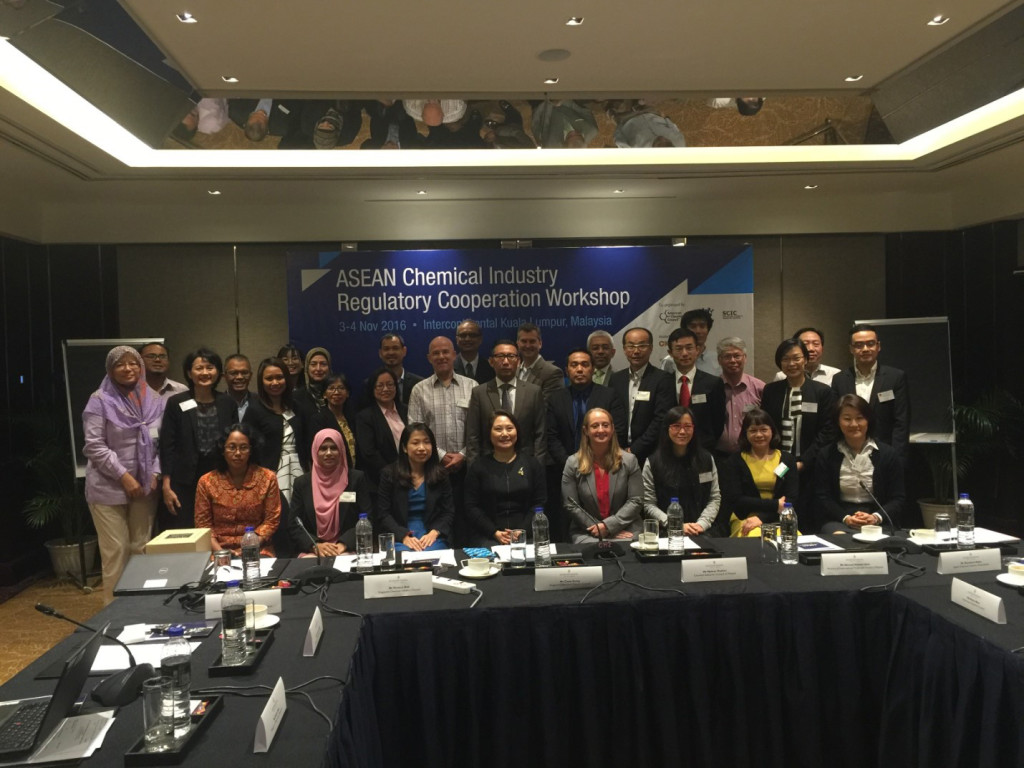
10 Nov ASEAN Chemical Industry Regulatory Cooperation Workshop
The 1st ASEAN Chemical Industry Regulatory Cooperation Workshop was held in Kuala Lumpur, Malaysia on November 3-4, 2016. The Workshop hosted by the Chemical Industry Council of Malaysia (CICM) was jointly organized by the American Chemistry Council (ACC), Japan Chemical Industry Association (JCIA) and Singapore Chemical Industry Council (SCIC).
The ASEAN Regulatory Cooperation Project is an initiative of the International Council of Chemical Associations (ICCA)’s Global Regulatory Cooperation Task Force (GRC TF) under the auspices of the ICCA Chemical Policy and Health Leadership Group (CP&H LG). Enhanced regulatory cooperation has the potential to significantly reduce costs for governments and industry alike, thus helping economies to achieve their regulatory mandate of protecting human health and the environment without erecting unnecessary barriers to trade. The ASEAN Regulatory Cooperation Project is based upon the ICCA Global Principles for Regulatory Cooperation, which were developed by the GRC TF and approved by the ICCA Board of Directors in June 2015.
The two-day Workshop was participated by representatives from the government and industry from Indonesia, Malaysia, Philippines, Singapore, Thailand and Vietnam. Industry representatives shared best practices in risk assessment and management, examples of successful collaboration between government and industry, lessons learned from hazard-based systems such as the REACH and comparison of major chemical management systems while government representatives provided regulatory updates of their respective countries.
